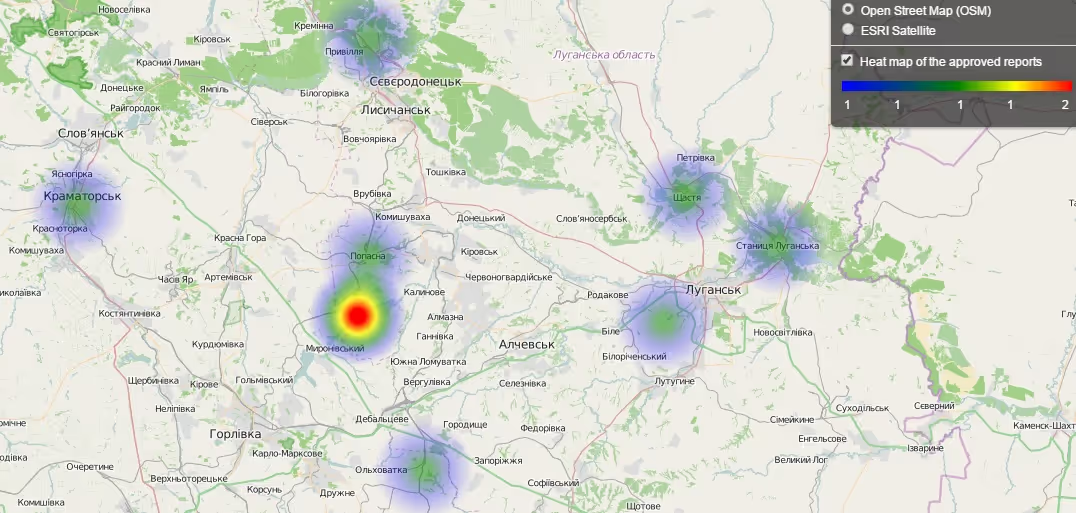Adjusting to New Circumstance in Mine Contaminated Eastern Ukraine

In the last blog we took you ‘behind the scenes’ of platforms development and explained what software will represent the innovation. In this blog, we will share some stories of the project beneficiaries, mine/ERW affected people, which we have learned during our consultations with the beneficiaries. These stories will highlight why our innovation can add value in the current Ukrainian conflict.
“It was probably the most foolish thing ever – to take a close-up picture of some explosives stuck in a trunk,” says Oksana Saenko, a humanitarian worker, with anxiety in her eyes. “But what could I do? I didn’t know. I have never seen anything like this before, so I went closer for a better shot.” Saenko saw this rocket propelled grenade near Mariyinka, while fleeing Donetsk to Slovyansk in August last year.
Saenko now helps internally displaced persons in Slovyansk originating from fighting areas. Almost every day she meets people affected by ERW. “I can’t forget the man holding a baby and his other child tightly gripping his trouser leg,” they witnessed their mother being blown up after stepping on a landmine, when they fled the heavily shelled town Debaltsevo. “There was also a 15 year old boy unable to sleep at nights since an ERW blew up a woman standing next to him at a checkpoint,” Oksana sadly recalls. The conversation with Oksana reveals that people are terrified and many are not aware of the dangers posed by mines and other ERW.
The DDG pilot platforms will allow people like Oksana to: 1) easily receive safety messages and 2) to empower her to contribute to the recovery of her community by reporting the dangerous items fast and easy to one database. The free DDG safety messages will be sent out to people living in Donetsk and Luhansk regions, including internally displaced persons, on weekly basis through SMS messages, email and the dedicated website. The messages will contain basic safety tips on how to carry on with daily routine without putting oneself or anyone else in danger. The web portal will also contain a heat map indicating the areas that dangerous item reports have originated from, which can give strong indications of where mine action assistance is needed.
Although Ukraine has been familiar with the dangers of mines and ERW stemming from the two World Wars fought on its territory during the last century, residents in the east have to learn once again how to live safe lives in new environments contaminated with new kinds of ERW and mines. The user-friendly pilot two-way communication web portal and parallel SMS service has the potential to help everyone affected by new dangers as they adapt to their new realities.
In the next blog we will share results of the MApps platform field testing in eastern Ukraine.
Stay updated
Sign up for our newsletter to receive regular updates on resources, news, and insights like this. Don’t miss out on important information that can help you stay informed and engaged.
Explore Elrha
Learn more about our mission, the organisations we support, and the resources we provide to drive research and innovation in humanitarian response.


.png)